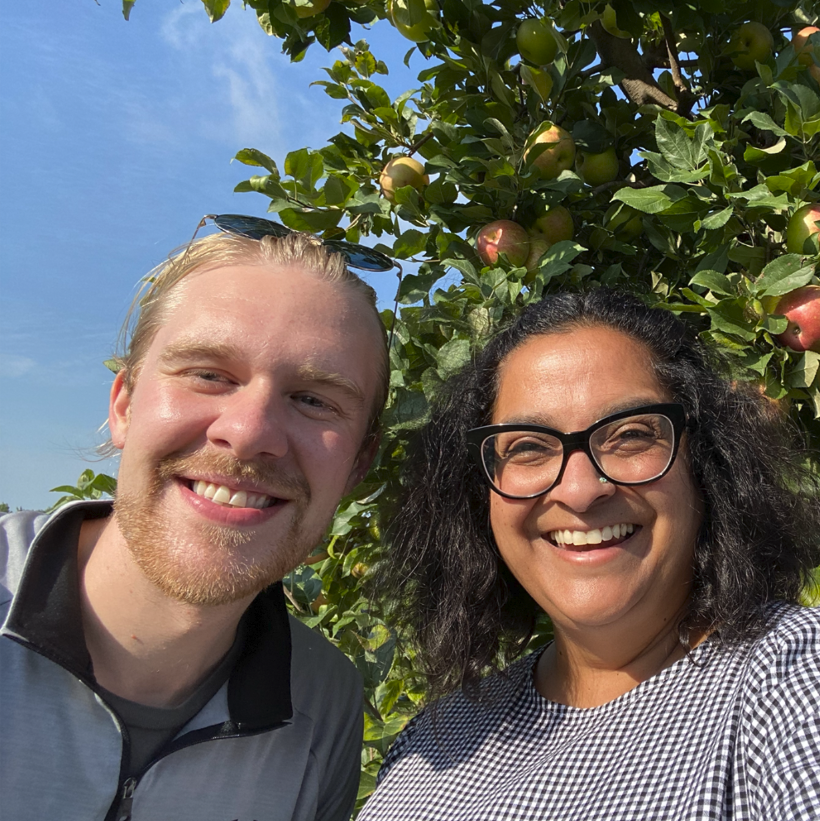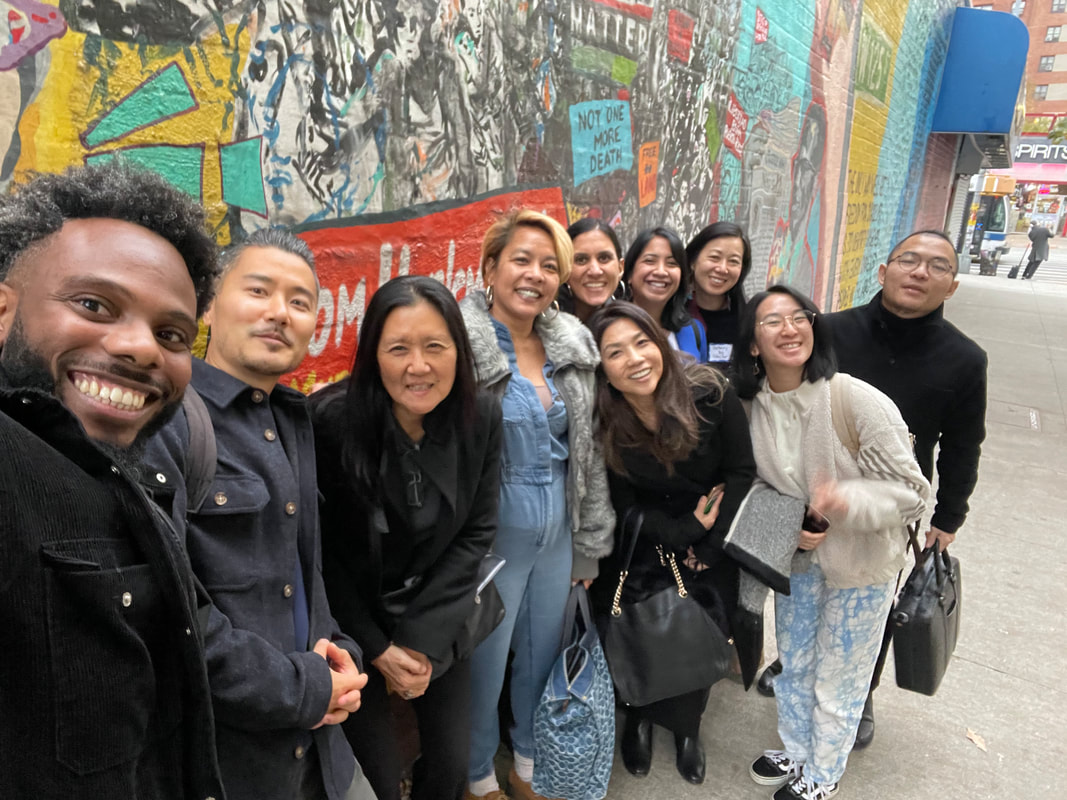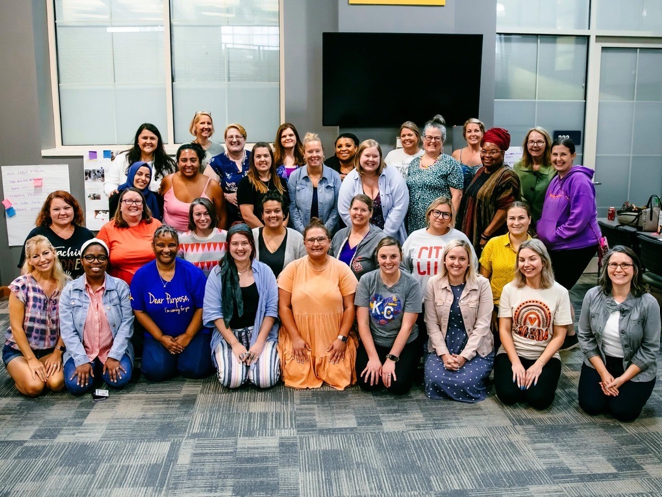Submitted by Mary Napoli and Angela M. Wiseman, Co-chairs, Early Career Award Committee In our rapidly evolving professional landscape, we continue to advance our collective body of research through the connections forged through CLA. It is this dynamic cycle of research combined with our networking opportunities that informs new directions and possibilities. With this in mind, we want to celebrate the contributions of our CLA Early Career Award Recipients from 2017 to the present. As you will read, they have continued to impact the field with their innovative and timely scholarship. In this blog post, we share their responses to open-ended questions that highlight their recent contributions to children’s literature and future projects on the horizon. They were also invited to reflect on how readers and educators will leverage their research in actionable and transformative ways. Finally, everyone was asked to share a photo of something that matters to them. 2023 CLA Early Career Award RecipientJOSH COLEMAN
2019 CLA Early Career Award RecipientNOREEN NASEEM RODRIGUEZ
2017 CLA Early Career Award Recipient
ANGIE ZAPATA
Mary Napoli is the former co-chair of the 2023 Early Career Award Committee. She is an associate professor of education and reading at Penn State Harrisburg. Angela Wiseman is a former CLA Board Member and co-chair of the 2023 Early Career Award Committee. She is an associate professor of literacy education at North Carolina State University. By Grace EnriquezHow might you help to advance the field of children’s literature? The Children’s Literature Assembly Research Award can support your projects and inquiries by providing a grant of $1,000 for original research addressing significant questions related to the field of children's literature. No longer is the power of a children’s book relegated to the realms of libraries, classrooms, and home. The field of children’s and young literature has burgeoned over the past few decades, with everyone from celebrities and professional athletes to politicians and corporations weighing in on the creation and use of children’s and young adult books. Additionally, the field has recognized the importance of all children seeing their lives, experiences, languages, and communities reflected and celebrated in books. These shifts have ushered in new considerations and challenges, as much as it has strengthened the field’s capacity to inspire hope, creativity, and human connection. To illustrate how the award can support our work with children’s literature, I gathered reflections from some past CLA Award recipients. Supporting Inquiry Award recipients have used the award grant to investigate these possibilities. Dr. Josh Coleman (2023 CLA Award recipient) is chronicling how ELA teachers are resisting book-banning legislation in their local contexts—namely their classrooms, schools, and communities. Dr. Emmaline Eliis (2022 CLA Award recipient) received the award as a doctoral student studying how print salience impacts classroom discussion. Dr. Christian M. Hines (2022 CLA Award recipient) and Dr. Eun Young Yeum (2021 CLA Award recipient) were also doctoral students when they received their respective awards, with each exploring the use of book clubs and graphic texts in different student and learning contexts. Ten years ago, the award enabled me (2013 CLA Award recipient) to study how teachers negotiated their use of children's literature and social justice teaching amid the multi-state adoption of the Common Core State Standards. Supporting the Knowledge-Building and Information-Sharing With the support of the award, recipients have also extended the findings of their projects to share with broader audiences. Dr. Ellis stated, “The CLA Research Award was a crucial support for the completion of my doctoral dissertation study. As a doctoral student, the award committee's belief in my research was very meaningful to me." Dr. Coleman collaborated with doctoral student Petra Lange to write a forthcoming article intended to support educators teaching in restrictive legislative contexts to resist education policy that removes children’s literature from classrooms and libraries. He is also completing a book proposal that expands upon that article. “My sincere hope is that this work will provide teachers with actionable strategies for challenging book bans and censorship in their local contexts,” Dr. Coleman reflected. Supporting Communities Perhaps most importantly, the award has also provided recipients with opportunities to support the communities with whom they work. “With the funds provided by the award, I was able to purchase high-quality picturebooks for the preschool teachers participating in my study, all of whom worked in economically disadvantaged schools,” explained Dr. Ellis. Likewise, Dr. Hines shared, “I am exceptionally grateful for the CLA Research Award. Funding from this award made it possible for my students to have access to books and resources to enhance their learning experience. This award allowed me the opportunity to co-create a space with students where they could engage in discussion and activities centered on learning with comics and developing their critical literacies." Dr. Caitlin Ryan (2020 CLA Award recipient) reflected, “Receiving the CLA Research Award was so helpful to the ongoing work Drs. Jill Hermann-Wilmarth, Craig Young, Mikkaka Overstreet and I were doing with our Reading the K-8 Rainbow Book Club project. It funded LGBTQ-inclusive books for our participants who had given us so much of their time and effort. We felt supported, they felt supported, and their students got new books! Having these materials, in turn, helped give us more to talk about and learn from during our Book Club sessions.” Dr. Coleman echoed these sentiments as they pertain to his research: “I am so grateful to the CLA for their support, and with it, I will champion intellectual freedom for teachers and students in every classroom and library across the United States.” So, what lines of inquiry and projects might you want to pursue to explore the power of children’s literature in our schools and communities? Up to two grants may be awarded if funding is available, and projects may engage using any research method or approach. For the application and more information, see the Children’s Literature Assembly Award page on the CLA Website. Grace Enriquez is a professor of Language and Literature at Lesley University, past chair of the CLA Research Committee, and a 2013 recipient of the CLA Research Award. |
Authors:
|
CLA
About CLA
|
Journal of Children's Literature
Write for JCL
|
ResourcesCLA-sponsored NCTE Position Statements
|
Members-Only Content
CLA Video Library
|
© COPYRIGHT 2018.
ALL RIGHTS RESERVED |




 RSS Feed
RSS Feed